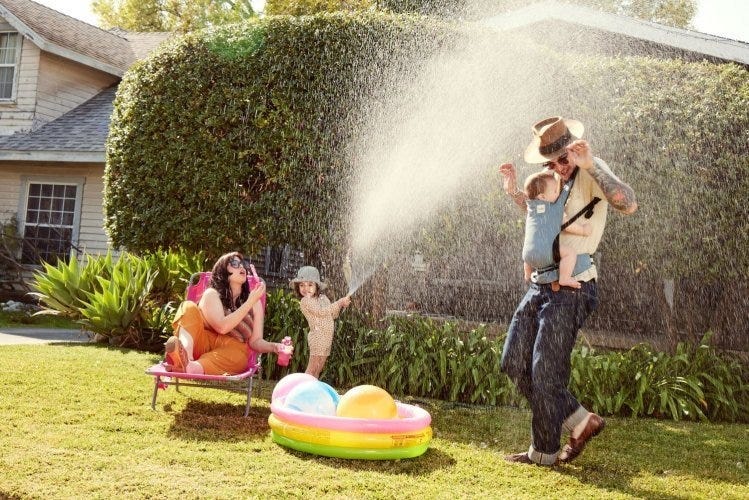
Why do babies cry? 8 Common Causes and Solutions
As a new parent, one of the most challenging aspects of caring for your baby is understanding why they cry. It can feel so overwhelming to figure out why they are crying and then how to get baby to stop crying! Crying is a baby's primary way of communicating, and deciphering these cries can feel like a daunting task. We'll explore the common causes of baby crying and provide practical solutions to help soothe your little one. Whether your baby won't stop crying or it feels like baby is crying for no reason, we've got you covered.
Why do babies cry?
Babies cry for various reasons, and understanding these can help you respond more effectively. Here are some common causes:
- Hunger: One of the most common reasons for crying, especially in newborns. Babies have small stomachs and need frequent feeding.
- Dirty Diaper: Wet or soiled diapers can cause discomfort, prompting your baby to cry.
- Sleepiness: Babies often cry when they are tired but unable to fall asleep.
- Need for Comfort: Babies sometimes cry because they need to be held and comforted.
- Overstimulation: Too much noise, light, or activity can overwhelm a baby, causing them to cry.
- Gas or Colic: Gas pains or colic can cause prolonged crying, often in the evenings.
- Temperature: Babies may cry if they are too hot or too cold.
- Illness: If your baby is unwell, they may cry more than usual. Look for other signs of illness, like fever or lethargy.
All About Baby Carriers for Nature Adventures
If your baby is crying, start with asking yourself these questions:
- “Is it time for them to eat?”
- “Is their diaper dirty?”
- “Is it time for them to sleep?”
These first three will be your go to when identifying the reason for baby crying! Then, you can figure out the best way to soothe your baby.


How to Soothe a Crying Baby?
Once you've identified why your baby might be crying, here are some effective ways to soothe them:- Feeding: If hunger is the issue, feeding your baby will usually calm them down.
- Diaper Change: Check and change their diaper if necessary.
- Swaddling: Wrapping your baby snugly can provide comfort and help them feel secure.
- Rocking or Swinging: Gentle rocking or swinging can be soothing.
- White Noise: The sound of a fan, vacuum cleaner, or white noise machine can help calm your baby.
- Pacifier: Offering a pacifier can satisfy your baby's need to suck if they aren’t hungry, but are still upset.
- Burping: If your baby seems gassy, try burping them to relieve discomfort.
- Warm Bath: A warm bath can be relaxing and help soothe your baby.
- Babywearing: Wearing your baby in a carrier can help them feel close and comforted. Check out our Aura Baby Wrap for a comfortable babywearing experience.
Factors to Consider:
- Baby’s Age and Weight: Ensure the carrier is appropriate for your baby’s size and weight. For example, Ergobaby’s Embrace Newborn Carrier is perfect for the fourth trimester where baby is small and you’re looking for an easy way to stay close. As they grow, you’ll want to upgrade to an all-position carrier that’s meant for growing babies.
- Parent’s Comfort and Ergonomics: Look for carriers with padded shoulder straps and lumbar support if you’re planning on longer outings.
- Ease of Use: Choose a carrier that is easy to put on and take off.
- Climate and Breathability: Opt for carriers made of breathable fabrics to keep you and your baby cool in hot weather.
Safety Tips:
- Proper Positioning: Ensure your baby is seated correctly, with their legs in an "M" position and their head should be close enough to kiss.
- Checking for Wear and Tear: Regularly inspect your carrier for any signs of damage.
- Ensuring Adequate Support: Make sure the carrier provides proper support for your baby’s head and neck.
What to do if your baby won’t stop crying?
Ideal Spots for a Nature Walk with Baby
- Parks and Gardens: Great for leisurely walks and picnics.
- Nature Trails and Forests: Perfect for more adventurous outings.
- Beaches and Lakesides: Wonderful for enjoying the water and sand, with the right carrier.
Activity Ideas
- Hiking: Enjoy a scenic hike with a hiking baby carrier that offers support and storage.
- Bird Watching: Use your carrier to keep your baby close while you explore and observe wildlife.
- Picnics: A carrier can free up your hands, making it easier to carry picnic supplies.


Advantages of Using Strollers for Nature Adventures


While baby carriers are fantastic for mobility and closeness, depending on the adventure of choice you might want to be a stroller along too.
There are a LOT of baby stroller options on the market. So we understand how confusing it can be to choose the one that’s right for your family. Not only are there a variety of brands, but a variety of strollers that serve different purposes.
There are a few types of strollers on the market:
- Full-sized stroller: This is typically the stroller parents thing of buying for all its versatility.
- Lightweight or umbrella stroller:These compact strollers are perfect for on-the-go adventures.
- Jogging stroller: Designed for parents who want to combine fitness with outdoor adventures.
- Double stroller: Designed for parents with multiple kids, especially twins.
- Car seat carrier: These strollers connect to a specific car seat. We don't typically recommend these as they can be unsafe for baby and uncomfortable for parents who are pushing.
Learn more about the types of strollers and which one would be best for you.
If your baby continues to cry despite trying the usual soothing methods, it may be due to more specific reasons that require additional attention:
- Colic: Colic is characterized by prolonged periods of crying, often in the late afternoon or evening. It's common in newborns and usually resolves by 3-4 months. For more on managing colic, visit our colic guide.
- Illness: If your baby shows signs of illness, such as fever, vomiting, or unusual lethargy, contact your pediatrician immediately.
- Allergies or Reflux: Sometimes, crying can be a sign of a food allergy or acid reflux. Consult your doctor if you suspect these issues.
- Teething: Babies start teething around six months, which can cause discomfort and increased crying. Offer a cold teething ring or other teething remedies.
It's important to stay calm and patient. If you ever feel overwhelmed, it's okay to place your baby safely in their crib or bouncer and take a moment for yourself. Never hesitate to seek help from a healthcare professional if you're concerned about your baby's crying. Understanding why babies cry and knowing how to soothe them can make a world of difference in your parenting journey. With patience and practice, you'll become more attuned to your baby's needs and be better equipped to comfort them. You got this mama! For more tips on baby care, check out how babywearing can help your baby stop crying.
Combining Baby Carriers and Strollers
For the ultimate flexibility, consider using both a baby carrier and a stroller on your outings.
Combining both options allows you to adapt to different situations. Use the carrier for more rugged trails and switch to the stroller for smoother paths or when your baby needs a nap.
Transition Tips
- Smooth Transitions: Plan stops where you can easily switch from carrier to stroller.
- Pack Light: Only bring essentials to make transitions easier.
Tips for a Successful Adventure
Planning Ahead
- Route Planning: Choose baby-friendly trails and parks. Check local mom groups or outdoor groups and get recommendations for the best outings for kids.
- Check Weather Conditions: Avoid extreme heat or unpredictable weather. Even with our most breathable carriers, when it’s hot, it’s hot. And having two bodies against each other in the heat will be naturally hot and sticky already.
- Packing Checklist: Include diapers, snacks, water, sunscreen, and a first-aid kit. These all-position carriers have storage pockets where you can fit some of the items easily!
- Stay Hydrated and Nourished: Pack healthy snacks to keep energy levels up and bring plenty of water for both you and baby.


Summer adventures with your baby are a wonderful way to create lasting memories and enjoy the beauty of nature together. From baby carriers to strollers, Ergobaby products are designed to provide comfort and ease for both you and your little one. So, gear up, get outside, and explore the world with your baby by your side.
Ready to embark on your own summer adventures? Check out Ergobaby’s range of baby carriers and strollers to find the perfect match for your family’s needs. Visit our website today and start planning your next outdoor excursion!


























